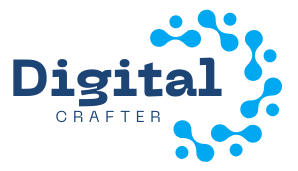Learning Management Systems (LMS) have become indispensable tools for modern education, training, and professional development. They provide a centralized platform for delivering, tracking, and managing learning content. While LMS platforms are used across various sectors, some industries have embraced them more extensively than others. Here’s a closer look at five industries where the top LMS platforms are most commonly implemented and thriving.
1. Education
It’s no surprise that the education sector leads the adoption of LMS platforms. From K-12 to higher education, schools and universities use LMS tools to manage curriculum, distribute learning materials, and engage students in interactive learning experiences. Popular platforms like Moodle, Canvas, and Blackboard have become household names in academic institutions.
Key benefits include:
- Easy access to course content for remote and hybrid learning
- Assessment and grading tools that streamline teacher tasks
- Interactive modules that enhance learning through video, quizzes, and discussion boards

2. Corporate Training
Businesses are major adopters of LMS platforms to enhance employee skills, ensure compliance, and foster continuous learning. Top LMS systems such as TalentLMS, Docebo, and SAP Litmos help companies deliver onboarding programs, technical training, leadership courses, and more. The ability to track progress and certification also adds measurable value to corporate learning initiatives.
Corporate adoption of LMS platforms is driven by:
- Scalability for training employees across multiple locations
- Automated course assignments and progress tracking
- Integration with HR systems for synchronized performance management
Industries like finance, technology, and healthcare especially benefit from LMS in maintaining regulatory compliance and upskilling employees.
3. Healthcare
In the healthcare sector, constant learning is crucial due to evolving medical practices, technologies, and regulations. LMS platforms are used in hospitals, clinics, and medical institutions to deliver continuing medical education (CME), patient care training, and policy updates. Tools like Absorb LMS and HealthStream specialize in healthcare-focused features that support role-specific training and compliance tracking.
LMS platforms in healthcare offer advantages such as:
- Up-to-date training in safety protocols and equipment usage
- Built-in certification tracking for accreditation purposes
- Content tailored to different roles—nurses, technicians, administrators, etc.

4. Government and Public Sector
LMS platforms are also widely used in the government and public service sectors. Agencies use them for civil service exams, ongoing professional training, and policy education. Whether it’s law enforcement, emergency response, or administrative departments, LMS systems ensure that employees remain well-informed and compliant with state and federal guidelines.
The government’s use of LMS platforms supports:
- Standardized training across departments and agencies
- Secure cloud or on-premise hosting for data security
- Budget-friendly solutions to minimize training costs
LMS tools like Cornerstone OnDemand and Moodle Government Edition are popular choices in this realm, offering robust data governance and reporting capabilities.
5. Retail and Hospitality
For customer-focused industries like retail and hospitality, delivering consistent training across a large, dispersed workforce is critical. LMS solutions help train new hires, roll out seasonal promotions, and reinforce brand standards. Companies like Walmart and Hilton Hotels use LMS platforms to ensure that all employees—from sales associates to hotel managers—receive timely and standardized training.
Main LMS benefits in this sector include:
- Mobile-friendly design for on-the-go learning
- Microlearning options to fit into busy work schedules
- Gamification features that increase engagement

Conclusion
Whether it’s a classroom, corporate office, hospital, government agency, or retail chain, LMS platforms have revolutionized the way people learn and grow professionally. While the tools and tactics may vary, the underlying mission remains the same—empowering individuals and organizations through accessible and effective learning. As the eLearning industry continues to evolve, expect LMS adoption to deepen across these sectors and beyond.

